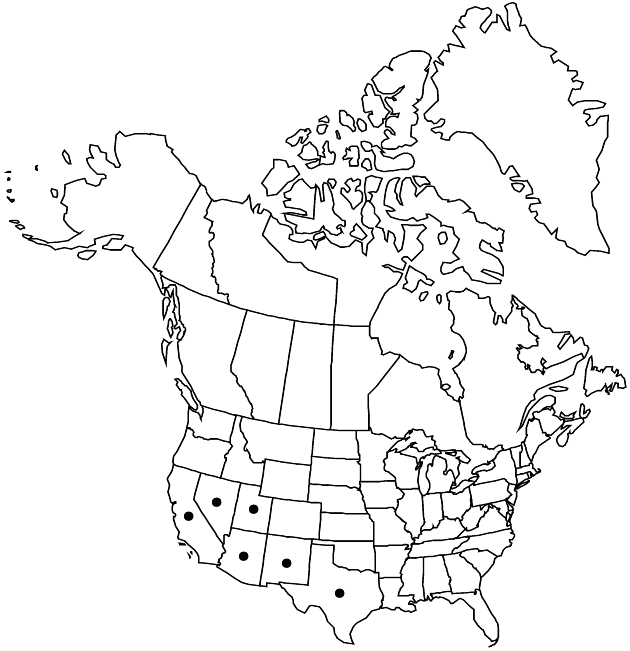Stylocline micropoides
Smithsonian Contr. Knowl. 5(6): 84. 1853.
Plants 2–14(–20) cm. Leaves acute, mucronate, longest 8–20 mm; largest capitular leaves (some or all) subulate to lanceolate (widest in proximal 1/3), (7–)11–17 × 1.5–2.5 mm (distalmost mainly 1.5–2 times head heights). Heads in ± paniculiform to cymiform, rarely dichasiform arrays, ± spheric, largest 5–9 mm, thickly lanuginose. Phyllaries 0, vestigial, or falling, ± subulate, mostly 0.1–0.5 mm, unequal. Receptacles narrowly cylindric, 2–3 mm, heights 5–8 times diams.; scars ± evenly distributed, ± flat. Pistillate paleae: longest 3.4–4.5 mm, winged distally; wings elliptic to ovate, widest in distal 1/3 of palea lengths; bodies (except midnerves) chartaceous; outermost paleae ± saccate. Functionally staminate florets 3–6; ovaries vestigial, 0–0.3 mm; corollas 1.2–1.9 mm. Cypselae 1–1.4 mm, compressed; pappi: staminate of 2–5(–10) smooth to barbellulate bristles 1.1–2 mm. 2n = 28.
Phenology: Flowering and fruiting Feb–May(–Aug).
Habitat: Relatively stable sandy or gravelly desert soils, often under shrubs, at rock bases
Elevation: 70–1600 m
Distribution

Ariz., Calif., Nev., N.Mex., Tex., Utah, Mexico (Baja California, Chihuahua, Sonora).
Discussion
Stylocline micropoides occurs throughout warm deserts of the flora area, through the Grand Canyon to southern Utah and up Owens Valley to the White Mountains of California. Sterile and malformed natural hybrids between S. micropoides and Logfia arizonica have been seen. The description of S. micropoides by D. S. Correll and M. C. Johnston (1970) was clearly based on specimens of L. filaginoides; both species occur near El Paso, Texas.
Selected References
None.